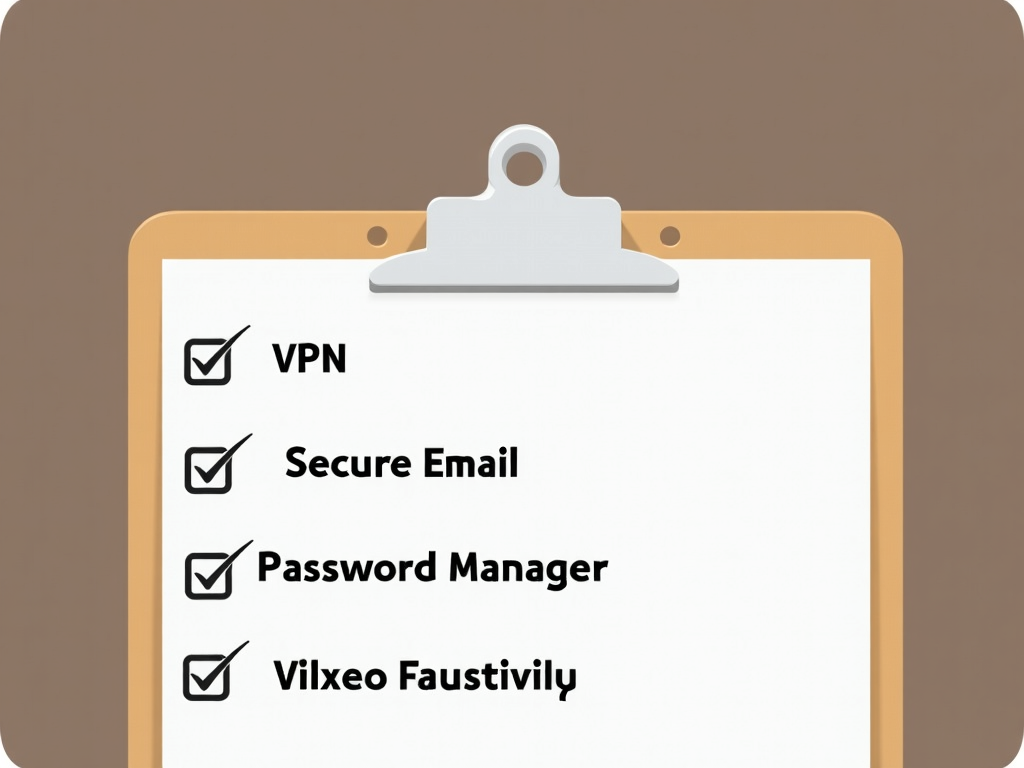Top Online Privacy Tools You Need in 2025
In 2025, staying safe online is a must. With data breaches and tracking on the rise, the right tools can protect your privacy. This article covers the top online privacy tools you need, spotlighting Tuta email and its end-to-end encryption. Let’s dive into keeping your digital life secure.

Why Online Privacy Is a Big Deal
Your online privacy matters more than you might think. It’s not just about hiding what you do online—it’s about keeping your personal info safe from hackers, nosy companies, and even governments. In 2025, cyber threats are smarter, and data collection is everywhere. The good news? You can fight back with the right tools.
The Best Online Privacy Tools for 2025
Here’s a rundown of the top tools to lock down your privacy:
- VPN (Virtual Private Network)
-
Hides your internet activity by encrypting your connection. Tools like NordVPN or ExpressVPN are fast and don’t keep logs of what you do.
-
Password Manager
-
Creates and stores tough passwords so you don’t reuse weak ones. Try LastPass or Bitwarden for easy, secure access.
-
Secure Browser
-
Blocks trackers and ads automatically. Brave and Firefox Focus are solid picks.
-
Encrypted Messaging
-
Keeps your chats private. Signal and Telegram use end-to-end encryption to lock out snoopers.
-
Secure Email
- Tuta email shines here with its built-in encryption. More on that soon.

Spotlight on Tuta Email
Tuta email is a privacy-first email service from Germany. It uses end-to-end encryption, so only you and the person you’re emailing can read the message. Tuta’s servers can’t peek at your emails—they’re locked tight before they even leave your device.
Tuta Email: How to Use End-to-End Encryption
Getting started with Tuta is simple:
- Sign Up: Go to Tuta’s website and make a free account. No personal details needed.
- Write Your Email: Tuta encrypts your message automatically if the recipient uses Tuta too. For others, set a password they’ll use to open it.
- Send Securely: Your email stays encrypted from start to finish—no one can intercept it.
Tuta also has an encrypted calendar and contacts feature. It’s a full privacy package.
My Experience with Tuta Email
I’ve used Tuta for over a year now, and it’s been a relief. The design is straightforward, and I love not worrying about my emails being scanned for ads. Sending sensitive stuff—like bank details—feels safer with end-to-end encryption. One trick I’ve learned: pick a strong password for non-Tuta users and share it securely, like through a quick call.

More Tools to Boost Your Privacy
Tuta covers email, but you need protection elsewhere too:
- Two-Factor Authentication (2FA)
-
Adds a second step to logins, like a code from your phone. Use Google Authenticator or Authy.
-
Private Search Engines
-
Skip Google and try DuckDuckGo or Startpage. They don’t track what you look up.
-
Ad and Tracker Blockers
- Tools like uBlock Origin and Privacy Badger stop websites from following you around online.
Picking the Right Tools for You
Not sure where to start? Here’s what to think about:
| Factor | What to Consider |
|---|---|
| Ease of Use | Pick tools with simple setups if tech’s not your thing. |
| Cost | Free versions work, but paid ones often add extras. |
| Compatibility | Check that it works on your phone or computer. |
| Reputation | Look up reviews to see if they’re trustworthy. |
Take a minute to match tools to your needs—it’s worth it.

What’s Next for Online Privacy
Looking ahead in 2025, privacy will keep making headlines. New laws and tech will pop up, but the basics won’t change: guard your data, watch what you share, and lean on tools that put you first. Staying in the know keeps you in control.
Wrapping It Up
The top online privacy tools you need in 2025—VPNs, password managers, secure browsers, messaging apps, and Tuta email—give you power over your data. Tuta’s end-to-end encryption makes it a must-have for email security. Start using these tools today, and you’ll surf the web with confidence.
